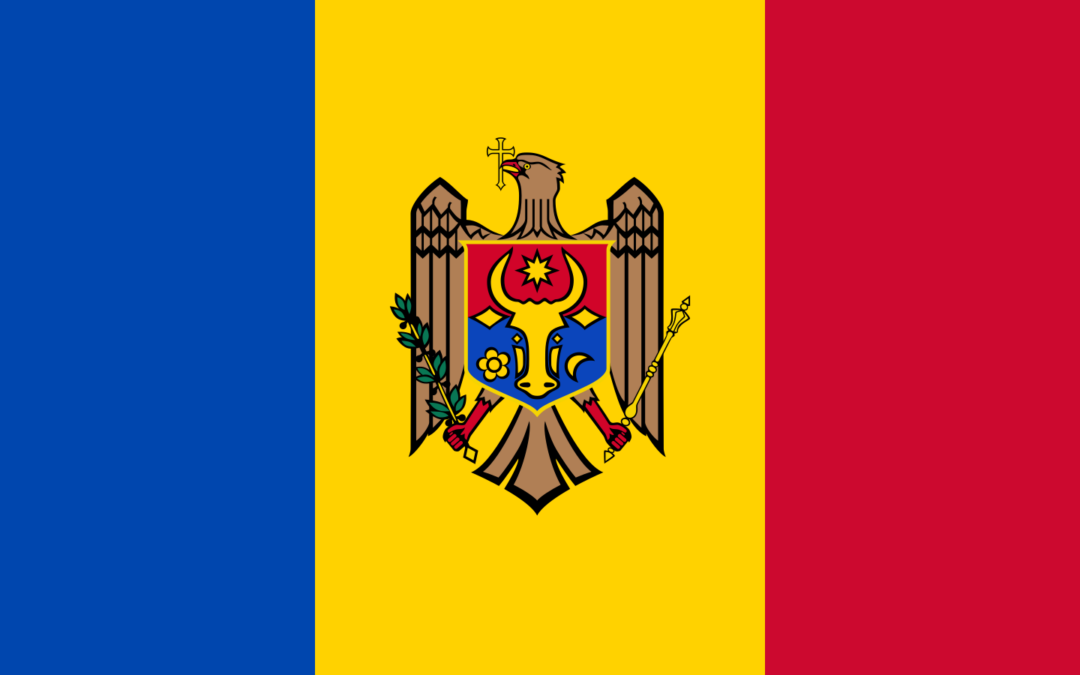
Moldova: ICJ Submission to the UN Universal Periodic Review (UPR)
The International Commission of Jurists (ICJ) has made a submission to the Human Rights Council’s (HRC) Universal Periodic Review (UPR) of Moldova.

The International Commission of Jurists (ICJ) has made a submission to the Human Rights Council’s (HRC) Universal Periodic Review (UPR) of Moldova.
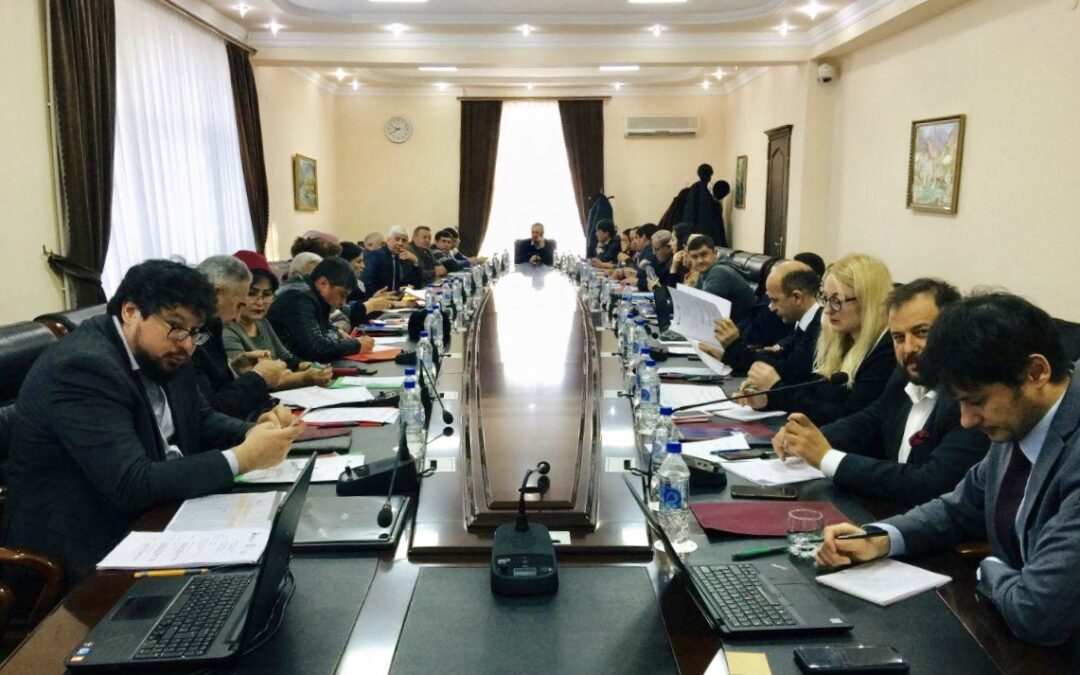
Today, the ICJ published the recommendations from a workshop on strengthening the work of the specialized bodies of the Bar Association on the protection of the rights of lawyers in Tajikistan, held in December 2019.
The event was held on 16 and 17 December 2019 in the city of Gulistan in the North of Tajikistan for members of the Commission for the Protection of the Rights of Lawyers (CPRL) of the Union of Lawyers of the Republic of Tajikistan.The ICJ organized this seminar in cooperation with the Union of Lawyers of Tajikistan and the Legal Policy Research Centre, Kazakhstan.
The President of the Tajikistan Union of Lawyers, heads of regional departments of the Union of Lawyers, who are members of the Commission on the protection of the rights of lawyers, and other lawyers took part in the two-day discussion.
Based on the outcome of this discussion, the participants elaborated the recommendations to strengthen the work of the Commission. Those recommendations are provided below.
The recommendations have been formulated on the basis of the views expressed by members of the Tajikistan Union of Lawyers addressing the situation in Tajikistan, and are not intended necessarily to reflect the legal or policy positions or other views of the ICJ or to be applicable to other contexts.
This set of recommendations deals with key challenges faced by the CPRL in upholding the independence, security and effective work of lawyers in Tajikistan. However, the list of these issues is not exhaustive nor comprehensive and should be further reviewed in light of ongoing developments in the legal profession and the justice system as a whole.
The recommendations should be read in light of the international law obligations of Tajikistan to protect the right of access to a lawyer, to a fair trial and to effective remedies for violations of human rights, including under the International Covenant on Civil and Political Rights, and international standards on the role of lawyers, including the UN Basic Principles on the Role of Lawyers.
Recommendations in English (PDF)
Recommendations in Russian (PDF)
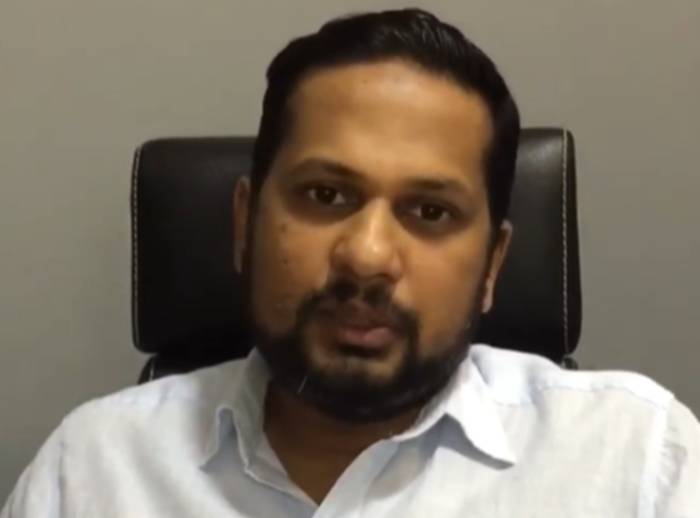
The ICJ called upon the Sri Lankan authorities to respect human rights in the conduct of their investigation of the 2019 Easter Sunday bombings, including ensuring that investigations into the alleged involvement of Sri Lankan lawyer, Hejaaz Hizbullah, are conducted in accordance with due process and fair trial guarantees under international law.
Specifically, the authorities must specify the charges against him, grant him full and immediate access to a lawyer, and investigate the circumstances of his arrest for potential rights violations.
Sri Lankan Lawyer Hejaaz Hizbullah was arrested by the Criminal Investigation Department of the Police (CID) on April 14, 2020 pursuant to the Prevention of Terrorism Act (PTA) and has since been kept in detention. No reasons were provided at the time of the arrest. During a media briefing, a police spokesperson stated that he was arrested as a result of the evidence found against him during investigations into the 2019 Easter Sunday bombings. The ICJ understands that no remand or detention orders authorising his continued detention have been served even after the lapse of 72 hours as required by Sections 7 and 9 of the PTA. Moreover, Hizbullah was only granted limited access to legal counsel on April 15 and 16, under the supervision of a CID official, who had insisted that the conversation be in Sinhala, in breach of attorney-client privilege. Legal access has been denied at least since April 16, 2020.
“No one questions the government’s need and obligation to investigate the horrendous Easter Sunday attacks, but these investigations must be conducted in a way that is consistent with international law and the Sri Lankan Constitution,” said Frederick Rawski, ICJ Asia-Pacific Director. “Not serving Hizbullah a remand order as required by law, and denying him full and confidential access to legal counsel is unacceptable and in violation of international standards on the right to liberty.”
A Habeas Corpus petition was filed by Hizbullah’s father on April 17 seeking his release from detention, and demanding that he be given access to his attorneys. According to the application, five persons posing as officials of the Ministry of Health entered his home and interrogated him, after placing him in handcuffs. They demanded access to two of his case files, recorded a statement from him and subsequently took him into custody at the Criminal Investigation Department.
“By allowing warrantless entry, search of premises and the arrest of persons, the Prevention of Terrorism Act violates basic due process guarantees under international law,” added Rawski. “This legal provision is one of many problematic provisions of the PTA. The ICJ reiterates it calls for the PTA to be repealed, and replaced with an a law that conforms with Sri Lanka’s international human rights obligations.”
According to Article 9 of the International Covenant on Civil and Political Rights, “anyone who is arrested shall be informed, at the time of arrest, of the reasons for his arrest and shall be promptly informed of any charges against him.” Article 14 entitles anyone charged of a criminal offence “to have adequate time and facilities for the preparation of his defence and to communicate with counsel of his own choosing”. Similar guarantees are enshrined under Article 13 of the Sri Lankan Constitution.
The UN Basic Principles on the Role of Lawyers provide that, “Governments shall further ensure that all persons arrested or detained, with or without criminal charge, shall have prompt access to a lawyer, and in any case not later than forty-eight hours from the time of arrest or detention.”
The ICJ has consistently called for the repeal of the Prevention of Terrorism Act, which has been used to arbitrarily detain suspects for months and often years without charge or trial, facilitating torture and other abuse. The ICJ reiterated its call for the repeal and replacement of this vague and overbroad anti-terror law in line with international human rights standards and Sri Lanka’s international obligations.
Contact
Frederick Rawski, ICJ Asia-Pacific Director, t: +66 64 478 1121; e: frederick.rawski(a)icj.org
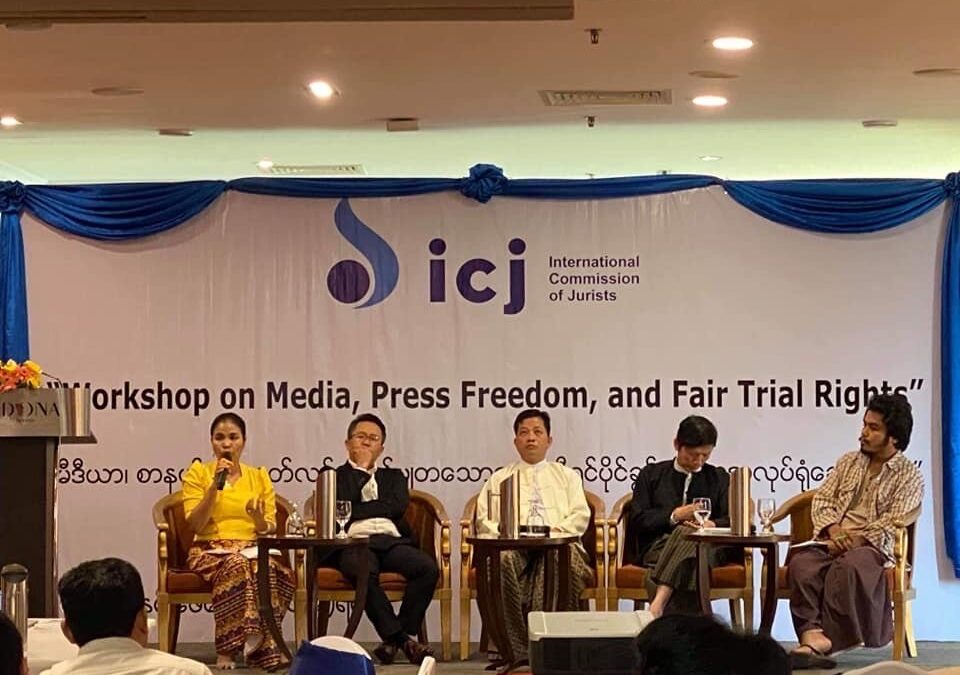
The ICJ conducted a workshop for journalists on fair trial rights and due process on 9 February 2020 in Yangon to help them respond to situations of arrest and prosecution
Some 25 journalists across Myanmar participated in the event, including media representatives from ethnic communities in Shan and Kachin states. Members of nationwide journalism networks, the Myanmar Media Lawyers Network, and the Myanmar Press Council also participated.
The workshop apprised journalists of the guarantees and rights of persons arrested and prosecuted under international human rights law, and the limited protections available under Myanmar law in comparison. It provided a space for participants to collectively identify gaps in journalistic protection. It also intended to foster greater collaboration between journalists and lawyers in safeguarding a free press in Myanmar.
The workshop opened with remarks from Linda van der Horst, head of the political section of the Embassy of the Kingdom of the Netherlands in Myanmar, and Ross Clarke, Team Leader at the ICJ. Both stressed the role of the media in ensuring a robust democracy that adheres to the rule of law, especially in light of the upcoming 2020 national elections. Linda Van der Horst noted that the workshop could also help journalists more deeply understand legal concepts useful for their reporting.
ICJ Associate Legal Adviser Jenny Domino addressed the rights of arrested persons and fair trial guarantees in criminal proceedings under international law. She highlighted the unlawfulness of arresting a journalist as punishment for his work in ensuring that individuals receive information in a free and democratic society. In a comparative context, she discussed the various writs available under Philippine law to protect journalists from unlawful arrests, extralegal killings and enforced disappearances.
ICJ Legal Adviser Hnin Win Aung then discussed Myanmar criminal procedure and the pre-trial rights of criminal defendants. She introduced the writ of habeas corpus remedy under the 2014 Law on the Application for Writs for contesting arbitrary detention. She explained the limitations of this remedy and the practical challenges of litigating in the Myanmar courts.
The presentations were followed by a panel discussion on fair trial rights challenges in Myanmar. The panel was composed of U Myint Kyaw of the Myanmar Press Council, U Brang Mai of Myitkyina Journal, U Myo Aung of Dawei Watch and U Than Zaw Aung of Myanmar Media Lawyers’ Network. The speakers agreed that there is no equality before the law and pushed for greater advocacy on judicial independence and impartiality.
To conclude the workshop, the participants shared their thoughts on how lawyers and the ICJ could help local media moving forward. The participants suggested a human rights analysis of how fair trial rights are undermined in practice by various actors in Myanmar’s criminal justice system. They also expressed their interest to work more closely with lawyers towards better reporting of current events.
The workshop marks the ICJ’s effort to support journalists and empower persons from minority groups towards greater participation in Myanmar’s democratic transition.
Contact
Jenny Domino, ICJ Associate Legal Adviser, e: jenny.domino(a)icj.org
Hnin Win Aung, ICJ Legal Adviser, e: hninwin.aung(a)icj.org
Related material
Strategic Litigation Handbook for Myanmar
Briefing Paper, Citizenship Law and Human Rights in Myanmar
Event, ICJ hosts workshop with civil society on freedom of religion or belief
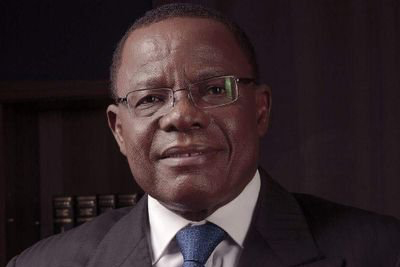
The ICJ today welcomed the release from detention and the dropping of charges against, of Maurice Kamto and other opposition figures.
The ICJ has called on Cameroonian authorities to ensure that they and others are able to exercise their human rights and fundamental freedoms without harassment or fear of arrest and prosecution.
The ICJ also called for the authorities to embark on wider legal and institutional reforms to facilitate respect for human rights and the rule of law in order to build genuine constitutional democracy in that country.
‘’Neither the arrest, nor detention nor prosecution of people for exercising their fundamental freedoms, including political dissent and peaceful opposition nor the trial of civilians before a military court was in compliance with Cameroon’s international legal obligations,” said Arnold Tsunga, ICJ’s Africa Regional Director in reaction to news of the release.
Maurice Kamto, a leading international jurist, former ICJ Commissioner, and presidential candidate of the Cameroon Renaissance Movement (MRC), was arrested on 28 January 2019 along with dozens of other opposition figures for protesting and challenging the results of the last Presidential elections held in October 2018.
They were facing trials before military courts, in contravention of their rights to a fair trial trial, on charges of ‘’insurrection, hostility to the motherland and rebellion’’ – charges which potentially carry the death penalty.
The detainees were released last weekend after Cameroon’s President Paul Biya’s tweet on 4 October 2019, that he had ordered the discontinuance of proceedings against them. The bringing and dropping charges should be in the remit of independent prosecutorial authorities, not the President.
Nonetheless, the ICJ stressed that the release of Maurice Kamto and the other leaders provides a welcome window of opportunity for Cameroonian authorities to begin an inclusive process of revamping the legal and constitutional framework to meet international standards.
The ICJ called on the Cameroonian authorities to desist further from applying the law and legal process to persecute or otherwise harass any person for the exercise of fundamental freedoms and from administering justice through military courts, which should be reserved for prosecution military personnel for military offences only.
The ICJ stressed that the release of Maurice Kamto and other opposition figures presents a unique opportunity for Cameroonian authorities to restore public confidence in the country’s democratic institutions by including all Cameroonians in the building of a society based on the rule of law.
Contact:
Arnold Tsunga, ICJ Africa Director, C: +27716405926, or +254 746 608 859 E: arnold.tsunga(a)icj.org
Solomon Ebobrah, Senior Legal Adviser, ICJ Africa, C: +234 8034927549; E: Solomon.ebobrah(a)icj.org